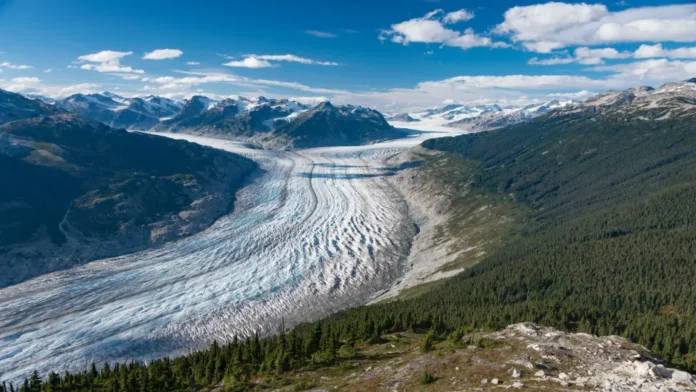A new study led by UNBC researcher Dr. Brian Menounos has found glaciers in Western Canada and Switzerland are disappearing at a record setting pace.
The findings were published in the peer-reviewed journal, Geophysical Research Letters, and reveal an alarming acceleration in glacier melt rates between 2021 and 2024.
According to the study, glaciers in western Canada and the conterminous United States lost approximately 22.2 gigatonnes of ice per year during the four year span.
“Even against the backdrop of rapid glacier loss since the start of this century, what we’re witnessing now is unprecedented,” Menounos said.
“The melt rates over the last four years far exceed anything we’ve observed in the past six decades, posing serious implications for freshwater availability, increased geohazard risks and the loss of cultural and tourism values tied to mountain landscapes.”
In both western Canada and Switzerland, researchers identified a combination of factors driving the record losses: low winter snow accumulations, early-season heat waves and prolonged warm, dry conditions.
“We’re seeing the effects of meteorological events compounding one another – these conditions rapidly depleted snowpacks, exposing darker glacier ice and firn – multiyear snow – which can absorb more energy from sunlight and further accelerate melting,” Menounos said.
“We believe these firn and ice surfaces are becoming darker from deposition of ash in Western North America and Saharan dust in Europe. Unfortunately, this darkening provides unhelpful feedback in a warming climate that will allow high melt rates to continue.”
The researchers are advocating for improved, next-generation physical models that better represent the response of glaciers to extreme weather events and processes like surface impurity deposition from dust and wildfires.
Something going on in the Prince George area you think people should know about?
Send us a news tip by emailing [email protected].







